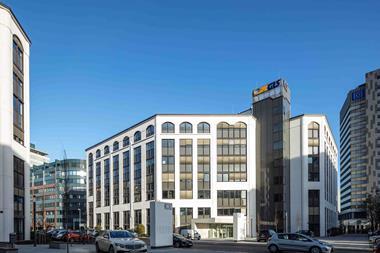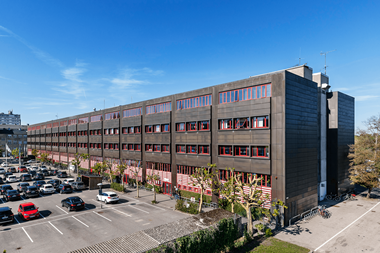German real estate company Patrizia has bought three business parks in the UK from Hermes Real Estate Investment Management, as they both position themselves for growth in the UK market.
Patrizia Immobilien completed the deal to buy Hillington Park in Glasgow, Chineham Park in Basingstoke and Birchwood Park in Warrington for £430m (€540m), with its joint venture with US hedge fund Oaktree Capital Management becoming the new owner.
Arwed Fischer, CFO of Patrizia Immobilien, said: “Patrizia is well positioned to continue its growth in Great Britain.”
He said the company’s UK subsidiary was analysing other office as well as residential-led opportunities in attractive locations across the country.
Patrizia now manages nearly €1bn of property in the UK, having built up the portfolio in less than 18 months, he said.
Rob Brook, head of portfolio management at Patrizia UK, said all three of the parks were well established.
“At the same time, they offer significant development potential, as they are situated in highly dynamic regions,” he said.
“Over the next few years, we will leverage this potential value with new investments and intensive asset management in cooperation with Oaktree Capital Management,” said Brook.
Brook founded London-based Tamar Capital Group, which was bought by Patrizia last year as it moved to enter the UK market. The resulting UK subsidiary established its first joint venture with Oaktree Capital Management in May 2013.
Hermes Real Estate said it was selling the three mixed-use parks — held by its subsidiary MEPC — to free up capital in order to invest in emerging growth sectors of the UK economy.
Chris Taylor, chief executive of Hermes Real Estate and chairman of MEPC, told IP Real Estate that, even though there clearly was growth in real estate in the UK regions, Hermes Real Estate’s job was to position the portfolio for maximum growth.
“There are broad investment themes which will drive above-average growth,” he said, adding that these themes were around urbanisation linked to connectivity. There were an increasing number of technology companies outside London that wanted to be in an urban environment, he said.
Added to this, there was “a degree of concern” over the level of pricing in the UK regions for income producing assets, he said. “In a market that’s looking expensive, you’ve got to work awarder to find growth,” he said.











